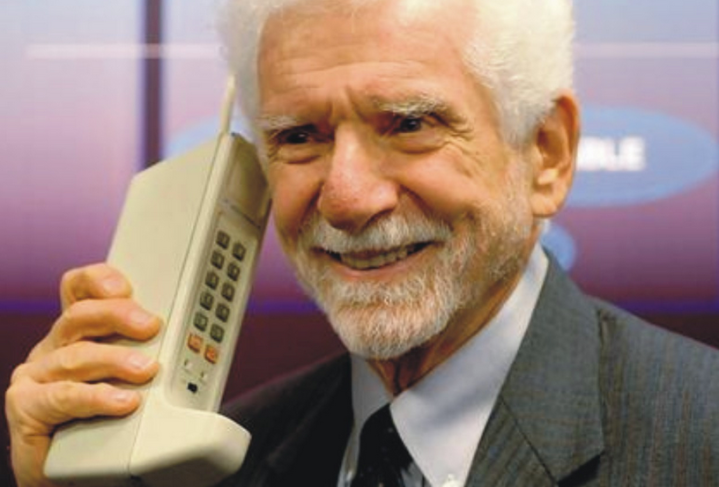It’s 50 years to the day since American engineer Marty Cooper stepped out onto New York City’s Sixth Avenue to make the first-ever cell phone call.
As you can imagine, the phone was like a brick and would’ve given Mr. Cooper a decent workout as he held the hefty device up to his ear.

Recounting the historic first call in an interview last year, Cooper, now 94, described how he had to get the number from his paper notebook before punching it into the phone’s keypad.
Cooper, who worked for Motorola at the time, thought it would be amusing to make the first call to Joel Engel, his counterpart at rival company Bell Laboratories (then the research division of AT&T and now part of Nokia).
“I said, ‘Hi Joel, it’s Marty Cooper … I’m calling you on a cell phone, a real cell phone. A personal, handheld, portable cell phone.’ Silence at the other end of the line.”
Cooper said the pair ended up having a “nice conversation” during that first mobile call, but he added that in the years that followed, Engel always claimed to have no recollection of the chat. “I guess I don’t blame him,” Cooper quips in the interview.
Cooper told the BBC recently that Bell had been pouring its efforts into developing a car-based phone instead. “Could you believe that?” the engineer said. “We’d been trapped in our homes and offices by this copper wire for over 100 years, and now they were going to trap us in our cars.”
But it took another 11 years to release Cooper’s phone as a commercial mobile device. The Motorola DynaTAC 8000X, which had no messaging or camera features and could only make calls, cost the equivalent of around $12,000 in today’s money, putting it well out of reach of most people. The device was 10 inches (25 centimeters) long, weighed 1.7 pounds (about 770 grams), and offered a mere 35 minutes of talk time. Charging it took 10 hours.
Technology has thankfully moved on (check out these old phone ads to see what we mean), and making a call no longer requires straining parts of your body to bring the phone to your face.
But in an interview last month, Cooper said he believed another big change was coming to mobile phones, suggesting that before long we’ll have the device “embedded under the skin near your ear” for even easier calls. Though, really, who uses their phone to make calls anymore?


